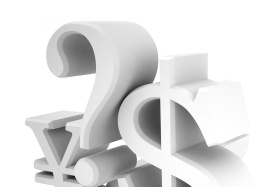EMs vulnerable to reflationary US policy

Trump’s win in the US elections has
“amplified” the reflationary theme that has shaped global markets in recent
months, according to Blackrock’s global chief investment strategist, Richard
Turnill.
“Central banks
If inflation raises, Jan Dehn, head
of research at Ashmore, anticipates that Trump may be forced to give the long
end of the US yield curve “special attention” to previous serious bear
steepening, “which could blow up everything from the stock market through to
housing.”
Following the election, the US
dollar index climbed to a two-week high after touching a one-month low,
Blackrock reports. Turnill expects the dollar to continue to strengthen.
The strengthening of the dollar would
have a negative impact on Asian stocks, according to Mihir Kapadia, CEO and founder
of Sun Global Investment.
“Considering the dollar basket is
holding at a near 14-year high and investors in the US expect a rise in
inflation, the Asian market currencies are experiencing tremendous stress
especially as they previously benefit from international capital inflows –
which is currently under threat perhaps in anticipation of the protectionist
fiscal policies of Donald Trump.”
Gene Frieda, global strategist at
PIMCO, agreed that the result of the US elections have created a more
challenging landscape for emerging markets, “with the potential for fiscal
stimulus in the US, a more hawkish Federal Reserve and protectionist trade
policies.”
If this result were to occur, it
would mean a “mixed bag” for EM: on the plus, the US demand for imports would
rise, but this must be weighed up against the negative implications of rising
US rates, which would likely strengthen the US dollar and complicate the
picture for EM assets.
“Not only have most emerging
markets been weak against the dollar since the Trump election, but the Rupee
has also been hit by the fallout from Prime Minister Modi’s ban on high
denomination notes,” added Kapadia.
Kapadia stressed that one of the
key factors behind the pressure on emerging markets is “the fear of protagonist
trade policies from the President-elect Trump.”
The worst-case scenario for EM
would be for trade protectionism to intersect with loose US fiscal policy,
according to Frieda, which would prompt the Fed into a more aggressive response
to counter the higher aggregate demand and negative shock.
However, Dehn views the material
movement in asset prices and currencies in emerging markets as the result of
“the market overreacting.”
Kapadia agreed that, on the
positive, EM assets faced these complicated scenarios from a relatively
attractive starting point. “While investment flows have returned to EM and
increased since February, the inflow has been modest compared to past cycles,”
he said.
Consequentially, the traditional
threat to EM, which is a “sudden stop in capital flows born of a more hawkish
Fed,” appears “reasonably constrained.”
Found this useful?
Take a complimentary trial of the FOW Marketing Intelligence Platform – the comprehensive source of news and analysis across the buy- and sell- side.
Gain access to:
- A single source of in-depth news, insight and analysis across Asset Management, Securities Finance, Custody, Fund Services and Derivatives
- Our interactive database, optimized to enable you to summarise data and build graphs outlining market activity
- Exclusive whitepapers, supplements and industry analysis curated and published by Futures & Options World
- Breaking news, daily and weekly alerts on the markets most relevant to you


